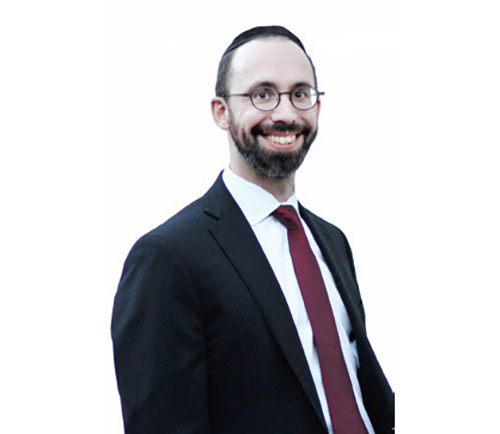
I can still remember spending a Shabbos Chanukah with my grandparents. My grandfather lit his father’s large silver menorah, taken when he escaped Germany in 1938. For a child, there is something mystical about the sight of a parent or grandparent lighting a menorah. Maybe it’s the association of Chanukah with family get-togethers, special fried foods, singing and laughter. Of course, every Yom Tov is best enjoyed with family, but why Chanukah specifically?
Our answer becomes clear as we delve into the origin of lighting the menorah.
Normally, the Torah reading is centered around the holiday, but since Chanukah is rabbinic, there are no explicit verses in the Torah that mention the holiday. Still, the Torah reading touches on the overall theme of the day. For example, on Purim where we were victorious over Haman and his nation Amalek, the Torah reading is about the war that was fought against Amalek in the desert.
For Chanukah, one would assume the Torah reading would be about the lighting of the Menorah in the Beis Hamikdash. Yet, that is only read on the eighth day of Chanukah. For most days, the Torah reading is Parshas Naso, which lists the korbanos (sacrifices) brought by the nesi’im (princes) on the day of the inauguration of the Mishkan in the desert. How do these symbolize Chanukah?
Rav Gedalia Schorr gives an incredible explanation. We know the construction of the Mishkan in the desert was completed on the 25th day of Kislev (the first day of Chanukah) but Hashem told the Bnei Yisrael to postpone the chanukat haMishkan (dedication of the Tabernacle) until Rosh Chodesh Nisan. The day of the chanukat haMishkan was the happiest and most joyous day since the creation of heaven and earth (Megillah 10b), thanks to a new and more palpable manifestation of Hashem’s presence in the world.
During the construction of the Mishkan, Aharon Hakohen complained to Hashem that he would not be part of the dedication ceremony and felt left out. However, Hashem told Aharon that his involvement will be greater than that of the nesi’im (princes of each tribe), for he alone will light the Menorah (Midrash). The Ramban explains that the Menorah was an appeasement to Aharon, for the princes’ participation applied only to the time when the Mishkan was in use, but Aharon’s role regarding the Menorah would extend way beyond that, alluding to the miracle of Chanukah and the mitzvah instituted for all homes to light a menorah on Chanukah. This prophecy was told to Aharon the day the Mishkan was completed—the 25th day of Kislev and first day of Chanukah!!
Aharon Hakohen’s pure desire to connect to Hashem on the day of the prophecy foreshadowed the future, for on that precise day a thousand years later the Chashmonaim would recapture the Beis Hamikdash and light the Menorah on the 25th day of Kislev. On that day Hashem’s presence would once again come back into the world. The Chashmonaim established the holiday of Chanukah and set in motion the fulfillment of the prophecy to Aharon Hakohen years prior, that every year on the 25th of Kislev, a menorah would be lit in each home.
This is precisely why we read the portion detailing the sacrifices the princes brought at the chanukat haMishkan on Chanukah. Just like the chanukat haMishkan brought the presence of Hashem into the world, so too the lighting of the menorah on Chanukah brings Hashem’s presence in the world even when there is no Beis Hamikdash!
The Bnei Yissaschar points out the root word of Chanukah and chanukas—dedication—is chinuch. Chinuch is the education and raising of our children. The word chinuch means to train, to give a child the ability to continue practicing the values and actions he has learned, when he comes of age and can perform them on his own.
This explains the prevalent custom to have a family get-together on Chanukah and for children to come home for Shabbos Chanukah. It all starts with the home. We spend time with family on Chanukah to strengthen the connection between Hashem and our lives and family at home. Although this year I will be away from my wife and children for Shabbos Chanukah, to join my future son-in-law for his
Shabbos aufruf, I will be with my new family that raised a wonderful son who will marry our daughter. May Hashem bring His presence into the home of my daughter and her chasan as they wed on the eighth night of Chanukah. Indeed, may Hashem’s presence be brought into each and every Jewish home, during Chanukah and during every other day of the year!
By Rabbi Baruch Bodenheim
Rabbi Baruch Bodenheim is the associate rosh yeshiva of Passaic Torah Institute (PTI)/Yeshiva Ner Boruch. PTI has attracted people from all over northern New Jersey, including Teaneck, Bergenfield, Paramus, Rockaway and Fair Lawn. He initiated and continues to lead a multi-level Gemara learning program. Recently he has spread out beyond PTI to begin a weekly beis midrash program with in-depth chavrusa learning in Livingston and Springfield. This year he joined Heichal Hatorah in Teaneck as a Gemara iyun rebbe. His email is [email protected].










